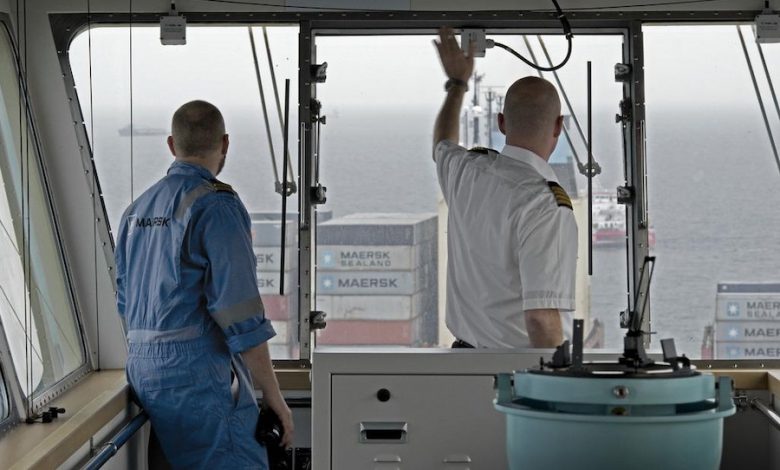Open data is the only way to the common good

Mikko Heikkilä, who sails as a master and is doing research towards a PhD in atmospheric sciences, applauds Maersk’s recent decision to make all its weather observations public. Now if only shipping could do likewise on emissions reporting.
Unfortunately, our seafaring tradition is to hide what you know. The slightest leak of information, sensitive or not, to the competition, administrators or to the scientific community is believed to only weaken your position. This has been the way for centuries.
Christopher Columbus, back in the 15th century, faked the daily miles in Santa Maria’s logbook and kept the actual ones in his diary to minimise anxiousness among his crew. His chart maker brother, Bartholomew, was accused of drawing Africa longer than what was already known to make the eastbound passage to the richness of the Spice Islands longer.
You will only gain from openness
In the days of the Great Grain Races in the early part of the 20th century captains who could predict where the doldrums were at their narrowest would arrive first and get the best pay. Would they share their wisdom? Hell, no.
Ushuaia is the hub for cruises to the Antarctic peninsula. On the lonely pier there are two types of ships: the ones that have been aground and ones that have not yet done so. Each captain and ice pilot keeps their notes and tracks to themselves. There is a glimpse of light in the form of Olex – a software where vessels share sounding data from remote areas.
Today I am calling for an end to this ridiculousness and would like to welcome the industry out of the dark ages.
I started research on shipping emissions a couple of years ago to complete my master’s degree in maritime management. It soon became clear how painful it is to get access to proper data even in these modern times. Now that I am continuing my work towards a PhD, I am becoming more frustrated.
Last week I shared a Splash news article on LinkedIn. The story was about container giant Maersk sharing its 10 years of weather data with climate scientists. My preliminary point was that perhaps the weather routing software companies would benefit from this data. The models they provide are only as good as the data on which the model has been fitted. The thread then took a twist that led me to write this commentary.
Open data is the guarantee to fairness for everyone. There is no way out of the fact that shipping needs to become emissions-free by 2050. The longer we wait, the more expensive it gets. Science is crystal clear on this. The push will come from not only regulation but from the cargo owners. Forerunners will become winners.
A few examples. Methane (CH4) slip from dual fuel LNG-powered ships is not a myth, it is a proven fact that has been known for years. CH4 is around 30 times more potent as a greenhouse gas than CO2 in a 100-year perspective, and it needs to be dealt with accordingly. If scientists would have been allowed onboard to measure this accurately, we would probably have amended the regulation with precision instead of the guessing game that is going on right now. Thanks to recent Finnish research we now know that methane slip can be measured using remote sensoring even from a distance.
We are still working towards efficient methods to monitor vessel compliance on SOx emissions; even though the regulation has been in force for years in ECAs and globally since the beginning of 2020. Catching a cheater would benefit the ones that follow the rules. NOx regulation is even worse for monitoring. Science would help, but it keeps playing catch up because of the data hiding.
Energy efficiency is the only parameter that IMO has managed to regulate in its bid to decrease GHG emissions. How can you define energy efficiency without access to actual cargo carrying data? The debate is ludicrous. I want to remind all stakeholders of science ethics that will protect your business integrity even when shared openly to the research community. You will only gain from openness.
As many salty seadogs reminded me in the thread on LinkedIn, weather observations have already been shared from ships to the meteorological institutes for ages. Yes, I have myself spinned the psychrometer, stared with sore eyes at the end of the watch to determine the sea height, and then swore like Captain Haddock while coding the observation in the correct form prior to sending out. I have shared the pain delivered by captains that wanted their ships on top of the monthly observation lists by emphasising quantity over quality. My dear colleagues, you are missing the point.
One year ago, in a job interview for a shipping company I always wanted to work for, I was asked what pleased me most about the company. I replied that I got a genuine feeling that their efforts towards sustainable shipping were real and not just greenwashing. To my surprise they further asked what they could do better. I said please share all available data with scientists. It is the only way forward.

Very well said, Mikko – I agree fully!! Especially GHG emissions/energy efficiency vs. cargo carried!!!